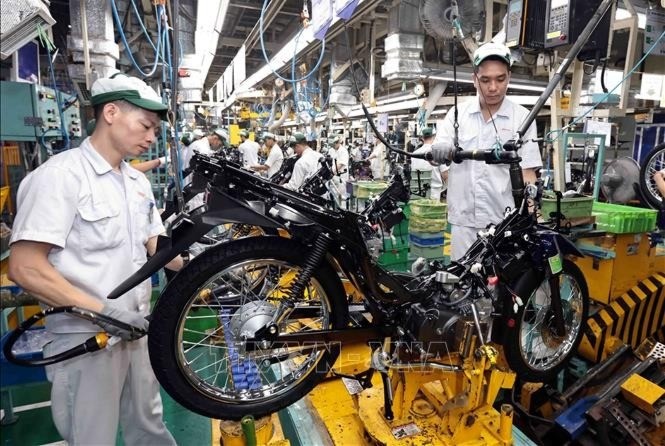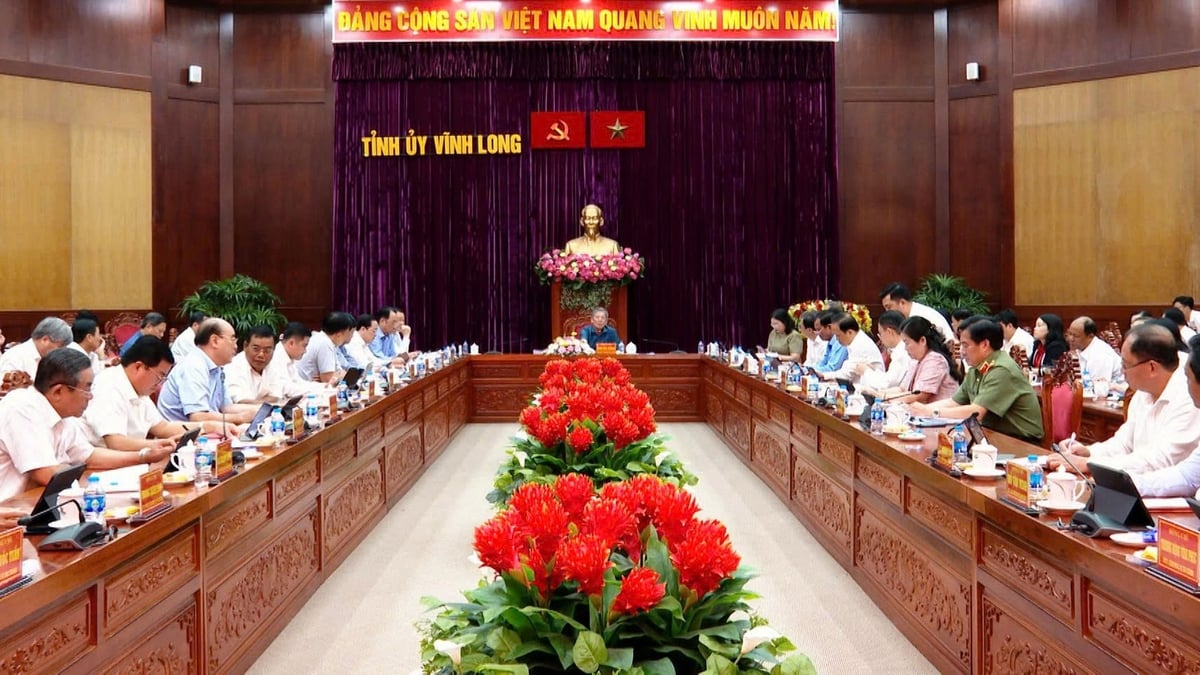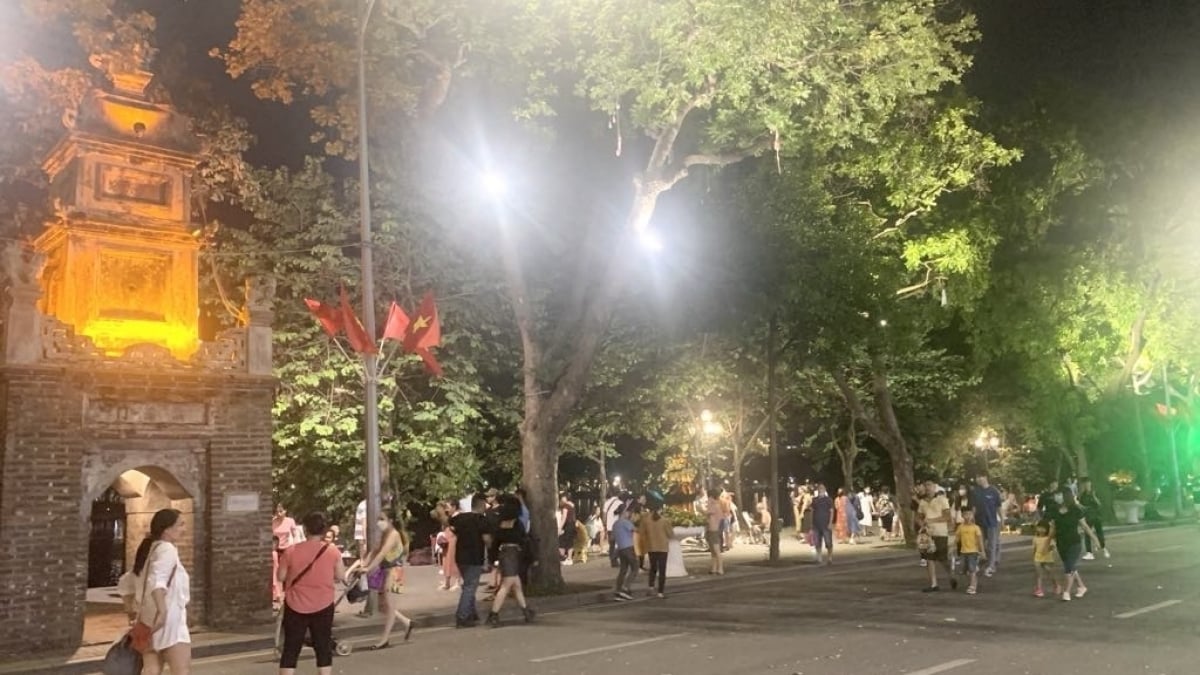
Market surveys in recent days show that many scooter models that were once "sold out" such as Honda Vision, Honda Lead or Yamaha Janus are being sold by some dealers at prices lower than the listed price of the company from several hundred thousand to more than one million VND.
Specifically, Honda Vision, the best-selling scooter model in Vietnam, is currently recording a slight decrease, the Premium version has a listed price of 32.98 million VND, now sold at 32.49 million VND; the Sport version has decreased from 36.61 million VND to about 36.29 million VND. Similarly, Honda Lead, a model for female users who love a large trunk, is currently seeing a deeper decrease, the Special version (with ABS) from 45.64 million to 44.99 million VND; the Standard version from 39.58 million to 38.99 million VND.
Yamaha Janus, Vision's direct competitor in the popular segment with a suggested retail price of VND 29,151 million, is being discounted by the company with a promotion program supporting a registration fee of VND 2 million or buying the vehicle in installments with 0% interest rate applied to all versions.
Not only scooters, many familiar motorbike models also have strong price reductions. This is a segment that still holds a large market share, especially in rural areas – where the ban on petrol vehicles has not been implemented.
Honda Wave Alpha, a national motorbike model, has a suggested price of about 18.2 million VND, but in reality at the dealer it is only 17.5 - 17.7 million VND, with gifts or support for vehicle registration costs. Honda Future 125, a higher-end motorbike model, is also being reduced by about 500,000 VND compared to the listed price.
According to a Yamaha dealer in Hanoi : “In the current context, dealers accept to reduce profits, even sell at break-even to push gasoline vehicles during this sensitive time. After July 2026, if we cannot sell in the inner city, we will also have to shift distribution to other provinces.”
According to some dealers, the number of customers looking to buy cars has increased again in recent days, mainly people operating outside of Ring Road 1, wanting to take advantage of good prices, while the vehicle conversion policies in Hanoi are still in the preparation stage.
Buy a gas car for "temporary use", then move to another region
After the Government issued Directive 20/CT-TTg on July 12, 2025, stating that Hanoi will stop the circulation of vehicles using fossil fuels from July 1, 2026 in Ring Road 1 and move towards expanding it, consumer sentiment has also changed significantly.
Instead of panicking, many people take advantage of this time to buy cheap gasoline cars, especially those that have been "inflated" compared to the manufacturer's listed price, use them for a short time and then send them back to their hometowns - where they have not been affected by the ban. Ms. Nguyen Thi Tham (Van Phuc ward, Hanoi) said: "Gasoline cars are still more convenient than electric cars, especially when my house does not have a place to plug in a charger. I temporarily bought a Vision, drove it for a few years and then sent it back to my hometown for my sister to use. There is no ban in my hometown so it still runs normally."
Similarly, Mr. Trinh Van Tuan (Nhat Tan Ward) shared: “I have calculated carefully. If I buy an electric car now, the price will be high, the battery is still new, not stable. Meanwhile, gasoline cars are cheap, easy to repair, easy to sell. When Hanoi bans it, I will bring the car back to my hometown for my family to use or give it to relatives - where gasoline cars can still be used for a longer time.”
According to motorbike dealers in Hanoi’s inner city, the trend of “buying to move to another region” is taking up a significant proportion, especially for customers with provincial household registration or relatives living outside the city. In addition, many people choose to buy in installments – paying in installments over 12 months – to take advantage of low prices without great financial pressure.
According to industry experts, although Hanoi is preparing to ban gasoline vehicles from 2026, this policy has not been widely applied nationwide. Meanwhile, more than 80% of communes and towns in Vietnam still use gasoline motorbikes as their main means of transport. This means that traditional motorbikes will still have a place to live in many localities for at least the next 5-7 years.
“Pay” or wait for the electric car?
Although it is a good opportunity to own a cheap gasoline motorbike, this is also considered a "transitional phase" of the personal vehicle market. Many experts believe that from the end of 2025, the number of newly produced gasoline motorbikes may gradually decrease, giving way to more compact and convenient electric motorbike models. As a manufacturer accounting for more than 83% of the Vietnamese motorbike market share, Ms. Sayaka Arai, General Director of Honda Vietnam Company (HVN), said that promoting the electric vehicle product portfolio and promoting green transformation are two of the three strategic pillars of this enterprise. In addition to the two models recently launched on the market, ICON:e and CUV:e, Honda Vietnam plans to launch 5 new electric motorbike models in the 2026-2030 period, expanding its electric vehicle business on a comprehensive scale from 2035...
In that trend, experts say that consumers who need a short-term means of transportation for 1-2 years, or intend to use it in localities that have not yet applied the conversion to electric vehicles, then buying a gasoline motorbike at this time is reasonable, especially models that have "increased in price". On the contrary, for those who already have charging infrastructure and suitable parking, switching to electric vehicles will be more suitable for the long-term trend.
From a market perspective, the effect of Directive 20/CT-TTg not only creates a big push for the green transition process, but also clarifies the exciting developments in the transition period - where consumers are taking advantage of the opportunity to take advantage of gasoline vehicles before they are "eliminated" from large urban areas like Hanoi.
The current situation shows that the gasoline motorbike market is entering a phase of "clearing" in big cities like Hanoi, before giving way to the trend of electric motorbikes. However, at the present time, this is still a good opportunity for consumers who want to own a gasoline motorbike at a bargain price, especially if they plan to use the vehicle in areas where the ban has not yet been applied.
Source: https://baolaocai.vn/thi-truong-xe-may-xang-ruc-rich-giam-gia-truoc-gio-g-post649345.html






















![[Photo] National Assembly Chairman Tran Thanh Man visits Vietnamese Heroic Mother Ta Thi Tran](https://vphoto.vietnam.vn/thumb/1200x675/vietnam/resource/IMAGE/2025/7/20/765c0bd057dd44ad83ab89fe0255b783)














































































Comment (0)